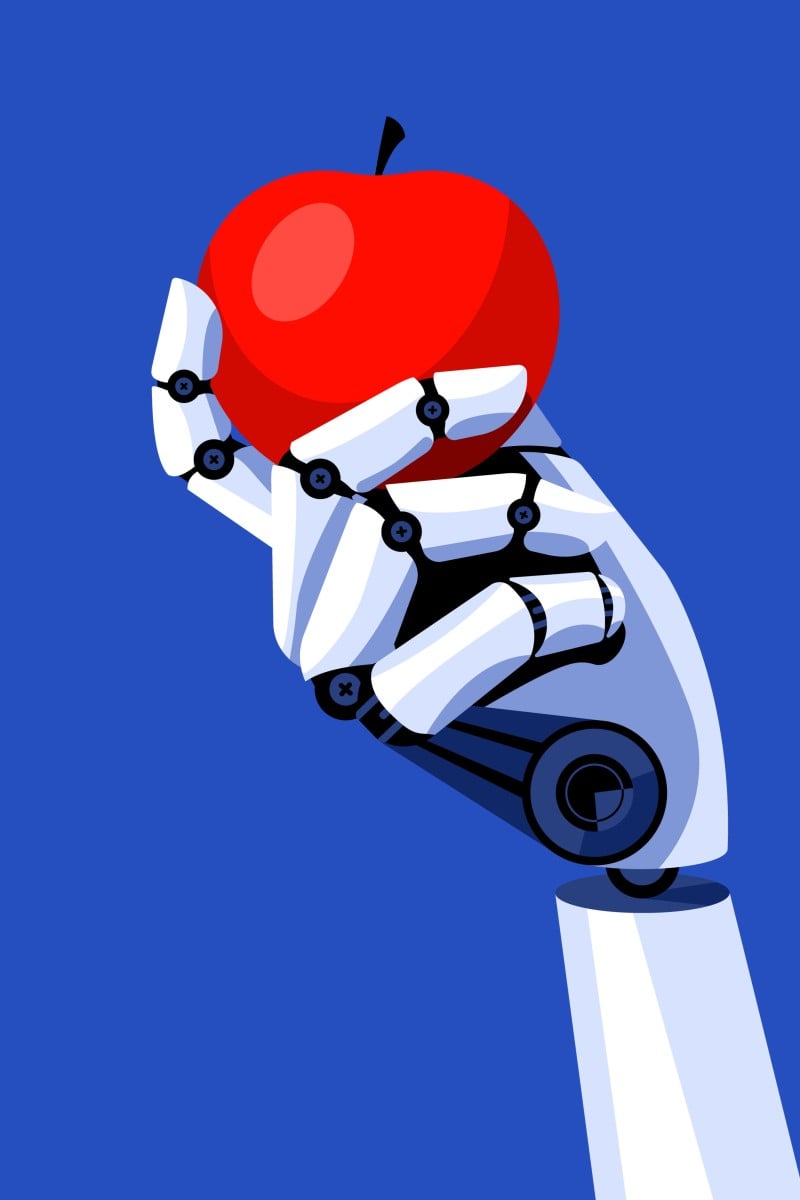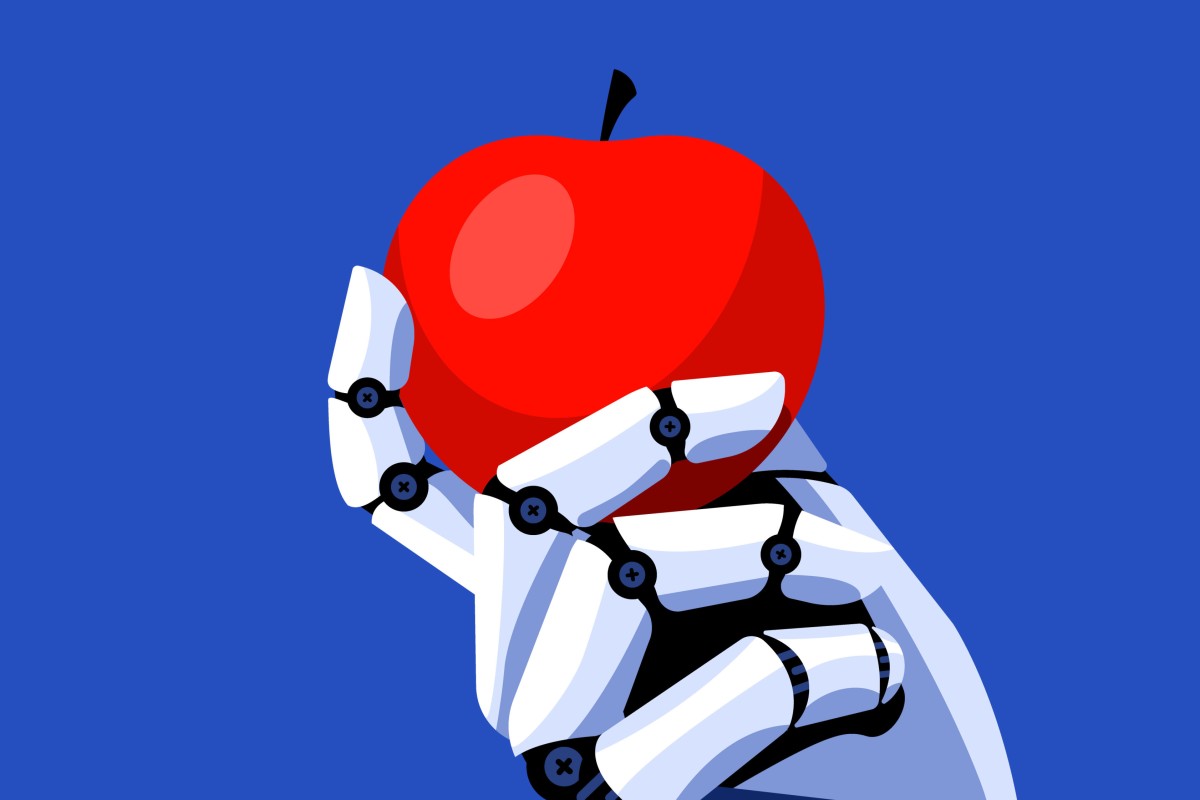
Face Off: Are AI tools such as ChatGPT the future of learning?
- Each week, two readers debate a hot topic in a showdown that doesn’t necessarily reflect their personal viewpoints
- This round, students decode the benefits and consequences that artificial intelligence could pose for educators and learners
 Will technology end up helping or hurting students in the long run? Photo: Shutterstock
Will technology end up helping or hurting students in the long run? Photo: ShutterstockIf you are interested in joining future Face Off debates, fill out this form to submit your application.
For: teachers and students must embrace AI opportunities
Anson Ng, 11, Holy Angels Canossian School
Artificial intelligence (AI) is quickly changing education around the world. ChatGPT, an AI chatbot, is becoming an incredibly useful tool for both teachers and students.
To illustrate the power of this technology, musicians and scientists at start-up Playform AI even taught a machine to write music so it could finish Beethoven’s 10th symphony. The AI learned from Beethoven’s notes and other works to compose music in a similar way.
This proves that AI can study data to solve complex problems and help humans accomplish tasks both big and small. Hence, educators and learners must embrace these opportunities.
Educators, students discuss how ChatGPT is changing the future of learning
In seconds, ChatGPT can create rich content, produce research, assist with routine tasks and generate personalised recommendations for students. It can act like a personal tutor to support a student’s learning and slash their homework time.
Consequently, pupils can pivot their learning to focus more on creativity, analysis and critical thinking. Over time, ChatGPT can help improve their academic performance.
In addition, the chatbot provides round-the-clock study support to students and is available free of charge. It may shift the current structure of in-person education to dynamic e-learning that is not limited by any time and location boundaries.
For teachers, AI can craft customised lesson plans to suit every student’s learning needs. For instance, ChatGPT can give pupils feedback on their homework, and then it can provide personalised lesson plans for them. Teachers can also receive targeted advice on how to improve a student’s performance in specific areas. Moreover, ChatGPT can provide a wide array of resources, from in-class activities to educational videos. It saves teachers’ time and enhances the quality of their teaching.
A Chinese proverb says, “Water can carry a boat but can also overturn it.” Thus, users must check the accuracy and appropriateness of AI-generated information in order to reap the maximum benefits of the technology.
To conclude, AI tools such as ChatGPT are quickly becoming the most effective and affordable options for personalised learning. It is the responsibility of both learners and educators to be prepared for an AI-driven world.
Chinese schoolchildren turning to ChatGPT to slash homework time
Against: limits of AI tools will hold students back
Calissa Poon, 11, Diocesan Girls’ Junior School
In November of last year, the release of an artificial intelligence chatbot called ChatGPT created controversy over its potential to revolutionise many industries. It engages in humanlike conversations with users and generates requested content in a matter of seconds. While its software has been hailed as the future of learning, serious concerns have been raised regarding the threat that AI poses for teachers and students.
The most obvious problem for teachers is that students may use the tool to cheat on essays or research assignments in a way that cannot be easily detected. While some argue that students should be allowed to use ChatGPT as long as they declare they are using the bot, this is easier said than done. What are the chances that cheaters would declare their intentions?
Platforms like ChatGPT can bypass many programmes designed to check for plagiarism since AI tools generate content by integrating information from the internet rather than directly copying and pasting from other sources.
ChatGPT, AI tools could get students expelled from Chinese University of Hong Kong
Although AI tools can quickly come up with answers or essays on a certain topic, they rely on existing information available on the internet. They cannot generate original ideas or insight, meaning students must learn how to be innovative and creative, which is a key aspect of education.
Furthermore, the accuracy of information on the internet could be a major issue given the prevalence of disinformation.
AI tools also lack the ability to account for cultural and social contexts when they answer questions from students. Learning is a process that requires not only factual knowledge, but also cultural competency and emotional intelligence. It is hard to envision that AI can replace mentors.
A competent tutor not only teaches knowledge but can also connect with the student on a personal level and understand the emotional and psychological needs that affect the learning process. This is something AI bots cannot perform.
Relying on AI would mean that students would not learn skills such as original thinking, data collection and analysis, problem-solving and self-expression through writing. This will hold back students’ intellectual development.
Through the process of writing for Face Off, I have learned to search and analyse information, come up with cohesive arguments and present ideas from my own thinking. If I generated this essay using ChatGPT, what would I have learned?
